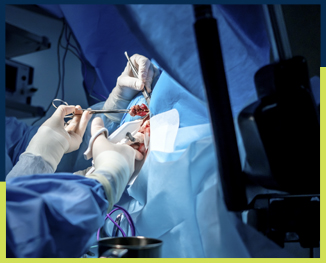Description –
The term Coloproctology refers to varied surgical procedures performed on the colon, anus, and rectum. Medical professionals performing such procedures are referred to as coloproctologists or colorectal surgeons. These surgeons treat various disorders like anal fissures (abnormal tears or cracks within the patient’s anus), birth defects within the anus or colon, swelling and inflammation of veins in the rectum (also referred to as haemorrhoids), anorectal fistulas (passageways that connect different parts of the anorectal area to the surface of the skin), faecal incontinence, colon and rectal cancers, anal or rectal prolapse, diverticular disease, diverticulitis, anus and other birth defects, Crohn’s disease and other severe colic disorders, and anal cancer.
Modern surgical techniques for colorectal issues include laparoscopic surgery, which is minimally invasive and requires less downtime for the patient.

How Is the Procedure Performed?
Laparoscopic surgery for colorectal diseases and conditions is one among the more modern approaches to surgery . Before this surgical approach, most colorectal procedures are performed by making long incisions within the abdomen, which meant that the patient will feel tons of pain and can need a longer period to recover. Laparoscopy was formerly utilized in treating gallbladder disease and gynaecological conditions, but was seen by many innovators as a means to perform various colorectal surgeries.
Unlike traditional colorectal surgery, laparoscopic surgery only requires a significantly smaller incision within the abdomen to perform same procedure with same results. Some sorts of laparoscopic surgery also can allow the surgeon to insert a hand directly within the abdomen while being assisted by a laparoscope for precision. Laparoscopy also involves the utilization of CO2 to lift the wall therefore the surgeon can access the location of the tumour or abnormal growth or tissue.
Possible Complications and Risks
Depending on the sort of colorectal surgery performed, the patient can experience differing types of complications after the procedure. Traditional open colorectal surgery may result in excessive bleeding and a negative reaction to the anaesthesia or sedative, and infection. Deep infections, or peritonitis, can occur inside the abdomen , which can require additional surgery and long-term antibiotics. Some colorectal surgical procedures also end in unsightly scars on the skin, which may then require additional aesthetic surgical procedures.
Other complications of colorectal surgery include damage to the spleen, perforating the intestines or the stomach, damaging the bladder and its connecting tubes (which may result in impaired bladder function), injuring the ovaries, uterus, and other parts of the feminine genital system , hernias, and therefore the breakdown or disruption of the wall .
Research shows that age are often a risk factor for colorectal surgery. Older patients typically suffer more complications and won’t enjoy the complete benefits of the surgery .
